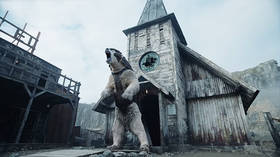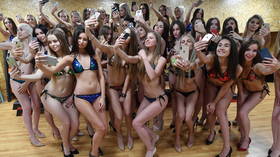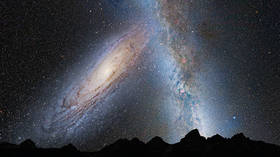His Boring Materials: HBO’s Philip Pullman adaptation fails because atheism has no story to tell

HBO’s latest fantasy offering is an adaptation of Phillip Pullman’s infamous His Dark Materials trilogy. The adaptation fails for the same reason that the preceding film adaption was a travesty: the source material is boring.
With his steampunk adventure centered on Lyra, a young girl who navigates alternate realities, Pullman was trying to write an anti-clerical equivalent of Tolkien or CS Lewis’ Narnia books. But whereas those authors had deep spiritual and intellectual wells to draw upon Pullman has only atheism.
Ideologically based fiction always fails on some level. Tolkien and Lewis’ fiction was not based on ideology but rather faith and a rich understanding of what culture means and does. Faith can be ideological, but theirs was not. Rather their faith was a dynamic reality in both their lives. But atheistic ideology is literally based on nothing. If a fundamentalist Christian writes a young adult romance novel extolling the virtues of virginity at least it’s about something, and, especially considering how unpopular traditional Christian sexual morality has become, there is something almost daring about it. It might be boring and predictable, but it’s also countercultural. This is part of what made Twilight appealing. Stephanie Meyers brought shiny vampires who thought virginity was a good thing into our porn saturated world. It wasn’t great art but it sure felt original given all the other offerings.
Atheism is still far from the norm in the West, but certain elite segments have been too willing for too long to treat it as brave. It might be brave to be an atheist in Smalltown, Arkansas or Afghanistan, but it’s not brave or interesting in the cultural setting that Pullman introduced his novels. The basic tenets of his worldview, that religion is oppressive and animalistic individuality is the highest form of human expression, are extremely common. If this is all Pullman’s atheism has to offer then His Dark Materials is just standard bourgeois dogma about what it means to be happy.
There are only two compelling atheistic narratives - the horrifically existential and the happy nihilist. The former is best exemplified by HP Lovecraft and the latter by Douglas Adams. Both are based in the brutal truth that if atheism is an accurate depiction of the world, then nothing really means anything. Lovecraftian writers use this to create stories that drive us mad with their creeping cosmic dread, while the Adamses of the world make us laugh through the sheer absurdity of their observations. Both use atheism to get at fundamentally human realities.
Writers like Pullman are incapable of this level of honesty and so their stories always fail, ironically enough, to be meaningful or interesting. They don’t have the courage to admit that if they’re right, life means absolutely nothing at all. If all there is is this gigantic universe, then our pathetic little lives are just tiny meaningless blips. Pullman wants to paint atheism as heroic, but the fantasy worlds he created are duller than dust. This was made shockingly clear in the horribly conceived first episode of His Dark Materials.
Also on rt.com Tolkien was ‘racist’ to orcs?! Sci-fi author echoes dank memes, totally unironicallyThe episode made one of the cardinal storytelling mistakes. Near constant world building without any stakes building. Strange new information is constantly thrown at the viewer, but it never translates into stakes for the characters. Demons, dust and all the other silly things that make up Pullman’s vapid universe are introduced without ever seeing how they apply to the story or characters. That is the definition of bad fantasy. The episode never really comes alive, it just drags on for 60 minutes and doesn’t go anywhere. But how could it go anywhere? What drives a character in a world without meaning?
Atheists like Pullman always seem to think that meaninglessness means we can make our own meaning. That a world without a God makes you the hero of your story. This makes Pullman’s fantasy based in capitalist decadence, not heroism. Most honest people realize that they simply aren’t all that important. Most of us aren’t that interesting. If I’m the hero and focus of my story, then my story simply isn’t all that compelling. This is why religion has had such universal appeal. It gives the mundane cosmic significance by placing it within a grand narrative. But when the “grand narrative” is navel gazing, it’s hard to understand why anyone but the gazer would care.
By John Lee Reed, an American Conservative who specializes in cultural and political commentary
The statements, views and opinions expressed in this column are solely those of the author and do not necessarily represent those of RT.














